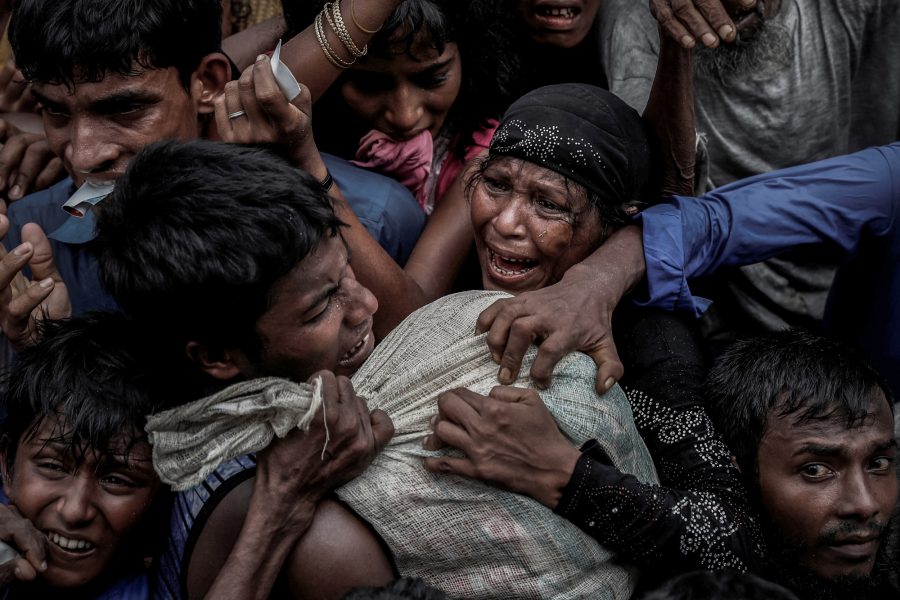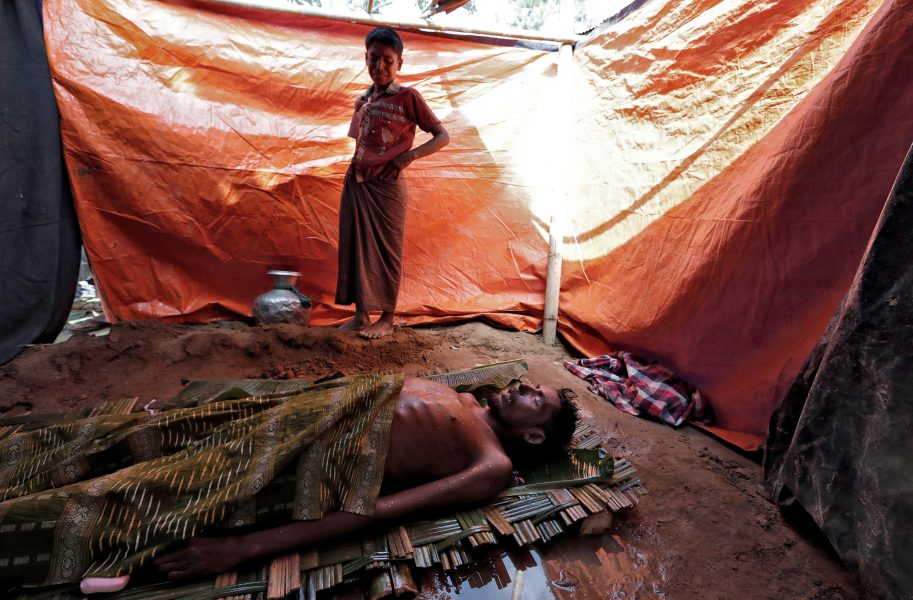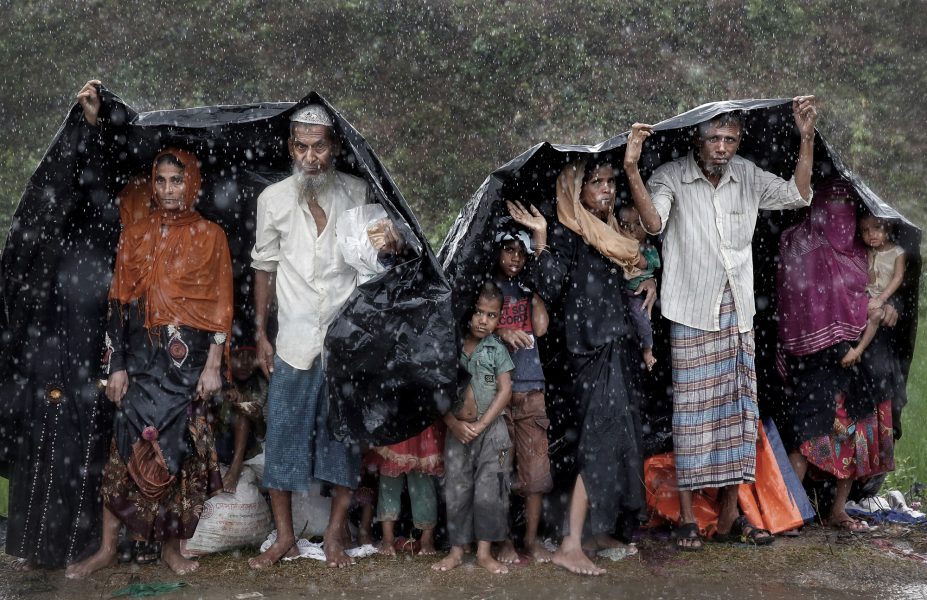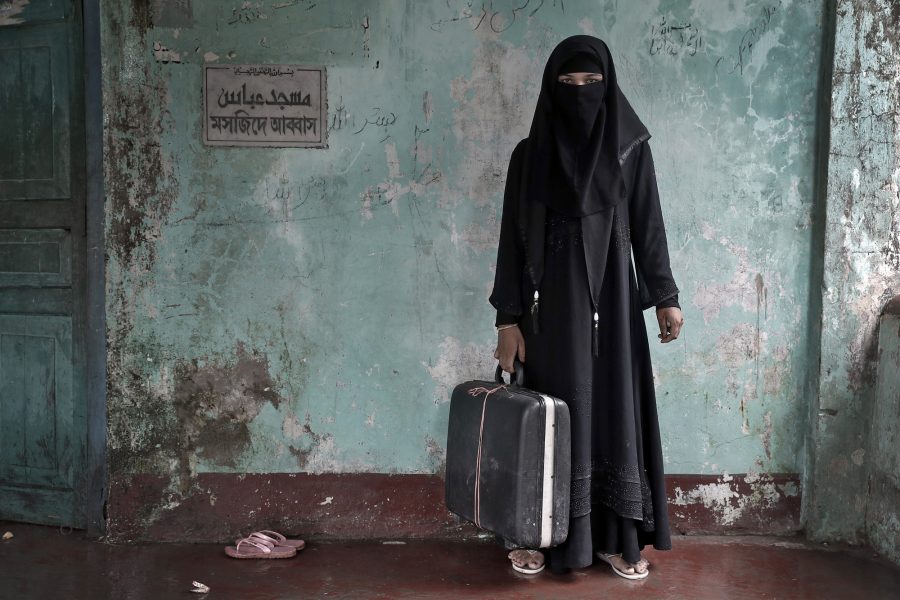About The Exhibition
Belfast Exposed is delighted to present a solo exhibition by Pulitzer Prize winning Northern Irish photographer Cathal McNaughton who travelled to Cox's Bazar in 2017 to document the plight of the Rohingya people who were fleeing a deadly crackdown by Myanmar's army on Rohingya Muslims, forcing hundreds of thousands across the border into neighbouring Bangladesh.
Belfast Exposed consider it important to shine a light on global issues of profound concern and importance. The extraordinary photography taken by McNaughton demonstrates not only the human cost of conflict but also highlights the vital role photojournalism can play in revealing it.
Cathal McNaughton, from Cushendall in Co Antrim, Northern Ireland is currently Reuters' chief photographer in India. He began his photographic career as an apprentice with the ‘Irish News’ where he built his reputation as a renowned photographer and now has more than ten years’ experience covering conflicts around the world.
Cathal’s stark images document the horrific conditions faced by the Rohingya people. We see faces distorted in anguish as crushing crowds of refugees’ scramble for aid in overcrowded camps. Cathal reveals a vulnerability within these images as he catches this desperation while presenting a chaos or conflict in the struggle between the masses begging and the security officers endeavour to keep order. In the aftermath we see lone portraits where there seems to be a sadness in the expressions, a despair settles over these images where a mother holds her dying child and a child grieves their dead parent. Cathal’s work forces the viewer into a traumatic and empathetic trap that both entices our curiosity through revealing a blatant truth within the narrative and forces a confrontation into the morality around these man-made situations.
The Rohingya genocide, described by the UN as a "textbook example of ethnic cleansing" is a series of ongoing persecutions by the Myanmar government against the Muslim Rohingya people which began in October 2016 and is still ongoing as of now. Recently the UN's top court ordered the Buddhist-majority country to take measures to protect members of its Rohingya community from genocide, however, the army in Myanmar insists they are fighting Rohingya militants and denies any systematic human rights abuses.
Cathal McNaughton stated “Documenting this crisis is a harrowing process. The thing you can't appreciate in the photographs are the noises when thousands and thousands of people are fighting for their lives…. You see humanity at its most basic in front of you. Children fighting adults for food, adults stealing food and aid from children, it's very hard to take in…. To see these people being beaten back from basic necessities - even though if the guards hadn't done so there would be mass casualties - it's a very surreal environment and not something you can be prepared for."
Deirdre Robb curator of the Rohingya exhibition commented “At Belfast Exposed we consider it is important to shine a light on global issues of profound concern and importance. The extraordinary photography taken by McNaughton demonstrates not only the human cost of conflict but also highlights the vital role photojournalism can play in revealing it. This work is powerful and captivating, yet challenging in content for audiences to engage with, nonetheless it is important to give the public access to the raw, honest photographs presented in this exhibition”.
Cathal McNaughton will be delivering a Masterclass workshop on Saturday 28 March, the final day of his exhibition. The masterclass is a unique workshop combining real world assignments alongside professional instruction in technical and conceptual issues that enable participants to sharpen their critical thinking, research and technical skills. If you are interested in booking a place on this Masterclass workshop, click on the link below.
The Artists
Cathal McNaughton
Cathal McNaughton is a multi-award-winning photojournalist currently based in Ireland. After winning the Pulitzer Prize in 2018 for his coverage of the Rohingya refugee crisis in Myanmar and Bangladesh, Cathal relocated back to Ireland where he is continuing his work documenting people and places.
Previously Cathal was chief photographer for Reuters in India and has travelled extensively in Asia covering news stories of world importance. He also worked for Reuters in Europe, the Press Association and The Daily Telegraph - and his work regularly features in leading publications across the globe.
Cathal’s photography has won him major accolades including POYI, U.K Press Photographer of the Year, Royal Photographer of the Year and Environmental Photographer of the Year. His work capturing the struggle of the exiled Rohingya Muslims saw him awarded the Pulitzer Prize for Photography in New York in 2018.
Events
Thursday 5 March | 6-9pm | Belfast Exposed
Free AdmissionFriday 6 March | 1:00pm | Belfast Exposed
Free AdmissionSaturday 28 March | 9am - Evening | Belfast Exposed
£250Press
Acknowledgements
'Rohingya' at Belfast Exposed is generously supported by the Arts Council of Northern Ireland and Belfast City Council.









